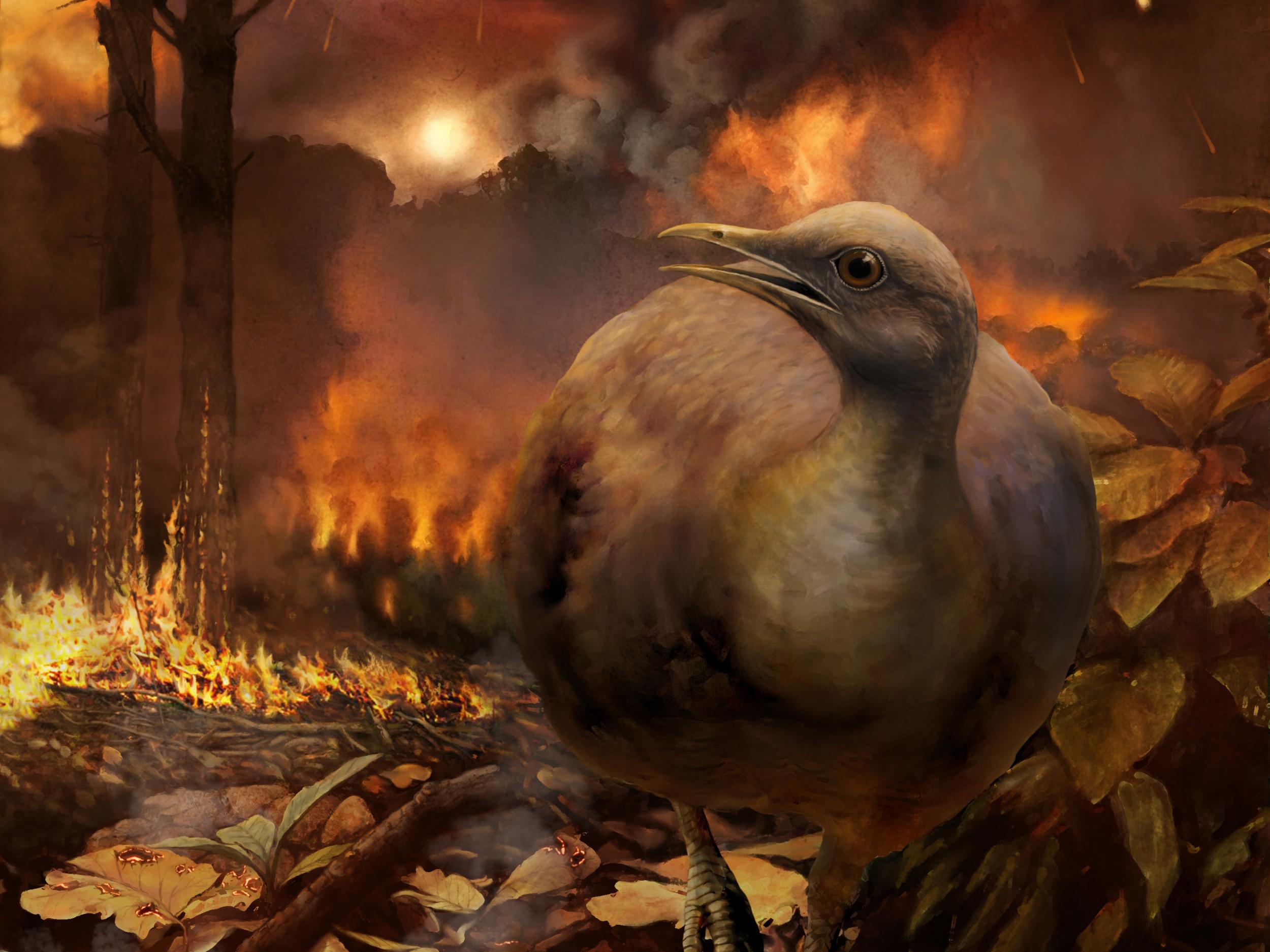Birds ‘had to learn to fly again’ after meteor strike that killed dinosaurs
'Only a handful of ancestral bird lineages succeeded in surviving the mass extinction event 66 million years ago, and all of today's amazing living bird diversity can be traced to these ancient survivors'

Birds had to relearn to fly again after their ancestors were wiped out by the meteor strike that killed off the dinosaurs, according to new rre
New research suggests that the cataclysm 66 million years ago not only wiped out Tyrannosaurus rex and his peers, but also tree-living flying birds.
As forests burnt around the world, the creatures’ perches disappeared.
And the only birds to survive were flightless species that lived on the ground, they believe and every bird alive today is descended from these emu-like ancestors, so the diversity of today’s winged species is all the more remarkable for that. The scientists say modern environmental destruction makes their findings particularly relevant.
“The end-Cretaceous event is the fifth mass extinction - we’re in the sixth,” said Dr Regan Dunn, a palaeontologist from the Field Museum in Chicago, a co-author of the new paper. “It’s important for us to understand what happens when you destroy an ecosystem, like with deforestation and climate change, so we can know how our actions will affect what comes after us.”
The meteor, up to nine miles wide, which may have been an asteroid or comet, struck the Earth off the coast of Mexico, releasing a million times more energy than the largest atomic bomb.
Hot debris raining from the sky is thought to have triggered global wildfires. It took hundreds or even thousands of years for the world's forests to recover.
Fossil records from New Zealand, Japan, Europe and North America showed evidence of mass deforestation.
Dr Dunn said: “Looking at the fossil record, at plants and birds, there are multiple lines of evidence suggesting that the forest canopies collapsed.
“Perching birds went extinct because there were no more perches," he said.
British co-author Dr Daniel Field, from the University of Bath, said: “We concluded that the temporary elimination of forests in the aftermath of the asteroid impact explains why arboreal birds failed to survive across this extinction event. The ancestors of modern arboreal birds did not move into the trees until forests had recovered from the extinction-causing asteroid.
"Today, birds are the most diverse and globally widespread group of terrestrial vertebrate animals - there are nearly 11,000 living species. Only a handful of ancestral bird lineages succeeded in surviving the mass extinction event 66 million years ago, and all of today's amazing living bird diversity can be traced to these ancient survivors."
PA contributed to this report.
Join our commenting forum
Join thought-provoking conversations, follow other Independent readers and see their replies
Comments
Bookmark popover
Removed from bookmarks